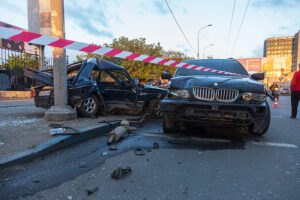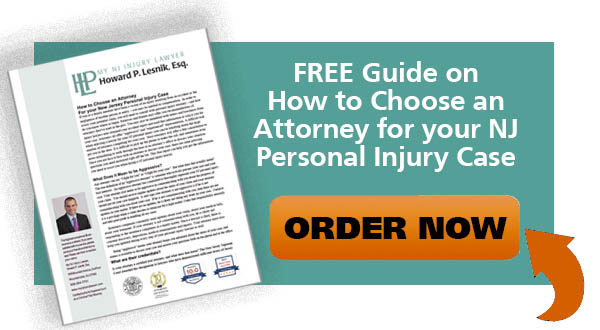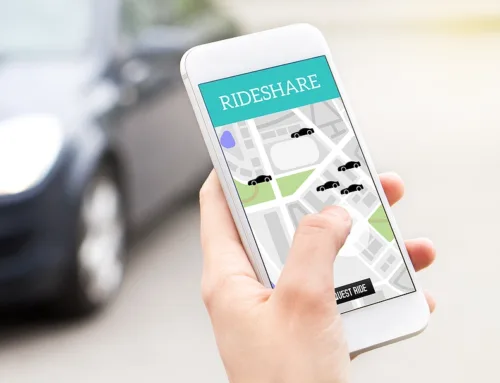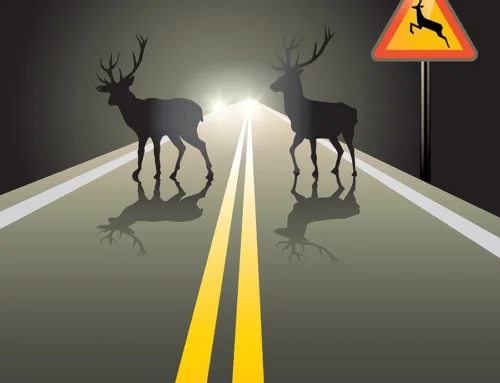Car crashes are unexpected, stressful, dangerous situations that even the most defense drivers aren’t prepared for. Remember, it is not an accident – it is a car crash. You do not pick up an accident report – it is called a “police report” for a reason. Even the most careful drivers who follow the rules of the road can find themselves in a crash caused by someone else who was distracted, careless or disregarded traffic and road conditions. With more than 50,000 auto accidents taking place on New Jersey roads every year, it pays to familiarize yourself with the basic steps to take in the event that you’re involved in a NJ car crash.
Stage One: The Immediate Aftermath of an Accident
- Tend to the short-term safety of everyone involved. This may mean evacuating the vicinity of any vehicles that are smoking or burning, or calling 911 to bring medical help for anyone with serious injuries that could be worsened by being moved. If it’s possible to do so safely, remove the vehicles out of the flow of traffic, or otherwise place flares and traffic markers to warn oncoming drivers to avoid the disabled vehicles. This is another important reason to call the police after a NJ car crash; they will help place warning markers and divert traffic safely.

- Take photos at the accident scene if at all possible. Making sure that you have photographic evidence of the positions of the vehicles immediately after the accident (ideally before the cars are moved), the damage to the vehicles, any other relevant details from the accident scene (such as tire skid marks, roadside objects that were collided with, obscured sight lines, traffic signage, weather conditions, etc.), and any injuries that are immediately obvious, could benefit your case later on, especially if you or any of your loved ones turn out to have suffered serious injuries. If there are any bystanders who may have witnessed the accident, find out if any of them are willing to make a statement, and ask for their contact information. Pro-Tip: Make sure you take photos of the property damage to all vehicles involved.
- Be careful of what you say. Do NOT say that you are not injured – you don’t know that’s true yet. Many of the most common sorts of injuries resulting from automotive accidents, particularly those affecting the back, neck, and spine, don’t present symptoms right away. The adrenaline rush of being in an accident can mask pain, so even the injuries you are aware of might seem less severe in the initial minutes or hours following the accident. Also, do NOT make any comment that could be interpreted as accepting fault for the accident or absolving the other party of blame. That doesn’t mean you need to be aggressive; you should simply focus on taking practical steps to handle the situation. Many of us have been socialized to be reassuring and conciliatory toward people in distress; in this situation, you should fight that instinct and stick to the facts.
- Exchange insurance information and report the accident. Make sure you obtain insurance information from all other parties involved in the crash. You will need to report the accident to your own insurance provider, and to notify the police. All accidents involving injuries or involving property damage in excess of $500 must be reported to the police, and the accident report filed by the officer on scene will be an important piece of evidence in any resulting injury claim or legal action you file. Carefully review the police report for accuracy and discuss any errors with the officer involved as soon as possible.
Stage Two: In the Following Hours or Days
- Seek medical attention for any pain or injury symptoms. Sometimes you need to go to the hospital immediately. However, not all accident injuries show symptoms right away. Whether you have obvious injuries or notice painful symptoms in the hours or days following the crash, see a doctor as soon as you notice something may be wrong. If your doctor prescribes or recommends a treatment such as a course of medication or sessions of physical therapy, make sure that you follow the entire course of treatment as outlined by your medical provider. It shows that you’re treating your injury with the seriousness it deserves.
- Consult with an experienced automotive injury attorney. If the injuries you suffered in your accident are serious, trying to pursue compensation without the help of an experienced attorney opens you up to a great deal of risk. Serious injuries often require expensive and lengthy medical treatment and may leave you with lingering symptoms, which can become worse if not treated properly. By working with a personal injury attorney, you have an experienced negotiator on your side to face down the insurance company’s claims adjuster, whose job it is to save his employer money by paying you as little as possible. Your lawyer can file a lawsuit to help you fight for fair compensation, and handle the legal complexities of pursuing your claim.
Contact MyNJInjuryLawyer
If you or a loved one suffered an injury in a NJ car crash, you should contact an attorney familiar with handling these claims. An experienced NJ Injury Lawyer will know how to obtain medical records, videos, photographs, experts, locate witnesses and contact the insurance company so you can make a claim for your injuries.
My NJ Injury Lawyer Howard P. Lesnik, Esq. offers complimentary strategy sessions to address any issue or questions you may have for your injury claim in NJ.
Please contact NJ Injury Lawyer Howard Lesnik, Esq., immediately if you were involved in an accident. I personally handle NJ personal injury cases on a regular basis. Please contact me now by email, by phoning 908.264.7701, or by completing the form to the right to schedule your complimentary 30-minute strategy session.






